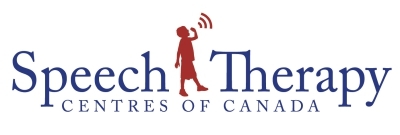As a speech-language pathologist I find that it is helpful if parents are aware of some of the early reading or “pre-literacy” skills that children must develop before they can become an effective reader. Below are a list of some of the expectations from the Ontario Kindergarten curriculum and suggestions on how you can work on these skills at home:
They learn to pay attention to the way print and books work. Make reading together a part of your daily routine! Draw your child’s attention to the title of the book and let them turn the pages to increase their knowledge that we read books front to back. Trace your finger along the words as you read so they understand that we read left to right. Start one of their favorite books from the back “by accident” and see if your child notices.
They become aware that some words rhyme. Have fun with rhyming games! Read books with lots of rhymes (for example Dr. Seuss books). Point out the rhymes to your child (for example: I do not like them in the house, I do not like them with a mouse. Look! House and mouse – they rhyme!) Take turns coming up with rhymes for simple words (“what rhymes with cat”? mat, hat, bat, etc.) Have fun by coming up with nonsense words that rhyme (for example ‘Dora’ can rhyme with ‘tora’ ‘mora’ ‘ sora’ etc!)
Learn that writing can communicate a message. This can be during book reading activities or during everyday activities! Make signs to put up around your house such as “John’s room” or “Amanda’s toy box” and draw your child’s attention to these signs. Point out different types of print including print on menus, birthday cards, toys, recipes, and more. Work with your child to ‘write an e-mail’ to an aunt, uncle, grandparent etc. Help them come up ideas for the e-mail, you type the e-mail, then read it aloud and show them that their message is in print.
They use approximate spelling for words that is based on their ability to hear, identify, and manipulate sounds. The ability to hear, identify, and manipulate sounds is called “phonological awareness” and is very important in learning to read.
Try these two activities to help your child along on their reading journey:
- Clap the syllables of words – start with 2 syllable words that are easy to separate like toothbrush, bookmark, baseball then try more difficult 2 syllable words (pirate, brother), 3 syllable words, and even 4 syllable words. Practice with words during daily activities: for dinner we’re having chicken, lets clap ‘chi-cken’, clapping family members names, words you see on signs, or clapping words that you find in books.
- Point out the first sound (not letter) in words. For example: Sarah starts with the ‘sss’ sound. Talk about other words start with the ‘sss’ sound. Choose your child’s favorite toys and talk about the sound they start with (example: car starts with the ‘kuh’ sound, ball starts with the ‘buh’ sound). Once your child gets this, you can talk about the sounds at the end of words.
Have fun with these different reading activities to help your child be successful in the Kindergarten classroom!
Note: information about the curriculum was taken from this website.
Written by: Carla Montgomery, M.H.Sc. SLP(C)Speech-Language Pathologist, Reg. CASLPO
photo credit: John-Morgan via photopin cc
